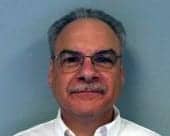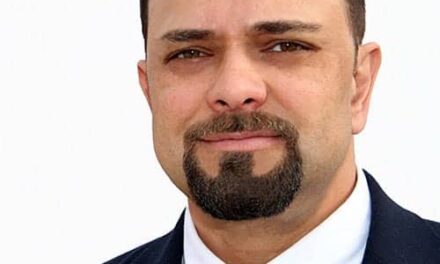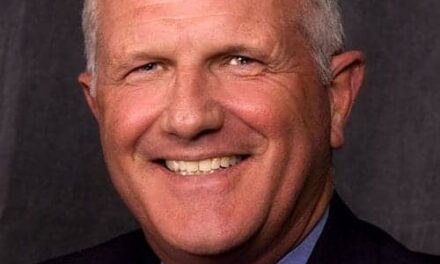By Jenny Lower
In 1988, Keith Kimble opened Biomed Technologies, Mt Arlington, NJ, to provide medical device repair and inspection services for the tri-state area. 16 years later, 24×7 featured Kimble in a round-up about independent service organization (ISO) owners and the challenges they face. Since then, Biomed Technologies’ business has thrived, with nearly a dozen technicians now on staff.
The secret, according to Kimble? Customer service, realistic expectations, and a lot of hard work. We caught up with Kimble recently to hear his plans for the future and what advice he’d give to others looking to follow his lead.
24×7: How did you get into this line of work?
Kimble: My first job in this field was with a small ISO. I loved it. When I was in my mid 20s, I knew that someday I would own my own biomedical company.
24×7: Why did you want to start your own business?
Kimble: Over the years, I have worked for some very good companies. I have also worked for a few that were not so good. Thankfully, they were short stints. Those companies taught me what not to do. To survive in the long-term, a company has to care about its customers and its employees. I have always felt customer service was imperative for any business. Biomedical was no different. I wanted to create a company that consistently provided excellent customer service. With the encouragement of my wife, I decided to take the plunge. It was difficult for several years. However, every year was a bit better than the year before. Toward the late 1990s, things were looking up.
24×7: How does the size of your business now compare to where it was in 2004?
Kimble: At the time, Biomed Technologies consisted of four full-time employees. Today, we have 10 full-time employees and one part-time employee. Last year, we celebrated a milestone—25 years in business. I am very proud of that, and of our team. I think I have the best team around. Everyone has the same vision and understands the goal. How many managers can say they get far more positive feedback from customers than negative feedback?
24×7: How has the industry changed in the last 10 years?
Kimble: From our perspective, I don’t think there have been many changes. Sure, there are more regulations than ever. And people want more done for a lower cost, but those are things that we have no control over, so we adapt accordingly. The focus on any change is how quickly you can adapt to maintain excellence.
24×7: In the early 1990s, you adapted to a shrinking hospital customer base by servicing surgery centers. What other challenges have you faced in the last decade, and how have you adapted?
Kimble: We have been very lucky. Managing growth and finding qualified and talented people seem to be our challenges. Because Biomed Technologies enjoys an excellent reputation, we pick up new customers at a brisk pace. However, trying to remain one step ahead of the workload by recruiting and hiring new biomedical technicians has been challenging. Just last week, we began actively recruiting an additional technician.
24×7: How do ISOs today earn and retain business?
Kimble: I think there is no difference in what an ISO has to do and any other business. Know your field, know your customer, and know the regulations. Be open and honest. Anticipate your customers’ needs, and be prepared to offer what they need. Show empathy. If your customer is not happy with something you did, let them vent. Do not interrupt. Don’t make excuses. Acknowledge their frustration and outline what you are going to do to correct the situation, then do it.
On the back of our business cards are four words that signify our company values: honesty, integrity, courtesy, and commitment. That is what our team members see when they present their business card. A few years back, I received a thank-you card from a customer thanking me for going out of my way to help her. I still don’t remember what I did to prompt the card. I don’t think I did anything special, but she did. That’s the key.
24×7: How important is understanding regional or geographic market differences in building a successful business?
Kimble: They are important in that some areas are physically more difficult to get around than others are due to the road system, traffic volume, weather, accessibility, etc. Regional expectations and attitudes are also somewhat a factor. Knowing your customer and working appropriately with these various factors while communicating openly and honestly is very important. Always remember, how would you like to be treated?
24×7: What do you wish someone had told you before starting your own business? What advice would you offer to someone looking to start an ISO today?
Kimble: Starting a business is rewarding. Achieving longevity is extremely rewarding. But beware, the stories are true. There will be more money going out than coming in, for longer than you think. You will need a supportive family because you will live, work, eat, and sleep the business. It will be on your mind 24/7. There will be no sick days, no vacations, no “attitude adjustment” days. How many times have you said, “I’m not a salesman, I do service”? Guess what—now you are a salesman. There will be no one else to blame when something doesn’t go as planned. Those are some of the cold, hard facts. If I could go back in time, would I do it again? Absolutely.
The advice I would offer is to keep an open mind. Medical equipment is not always located within a hospital. Go to where the equipment is located. Last week, we were contacted by a college and a zoo! Establish a relationship with a sales rep from a medical supplier to exchange leads. Be patient with a slow start. Develop trust with your customers, and they will recommend you to others. That is the best kind of advertising, and you can’t buy it. The medical community is small. Word can travel fast, which makes it a double-edged sword.
Always treat the customer (or prospective customer) with respect. Always put yourself in their position. Treat each customer as if they are the only one. Did I say give the best customer service possible? You have to differentiate yourself from the others. As I have said many times, “Anyone can fix a broken machine. It’s the way you care for your customers.” 24×7
Jenny Lower is associate editor for 24×7 magazine. Contact her at [email protected].






